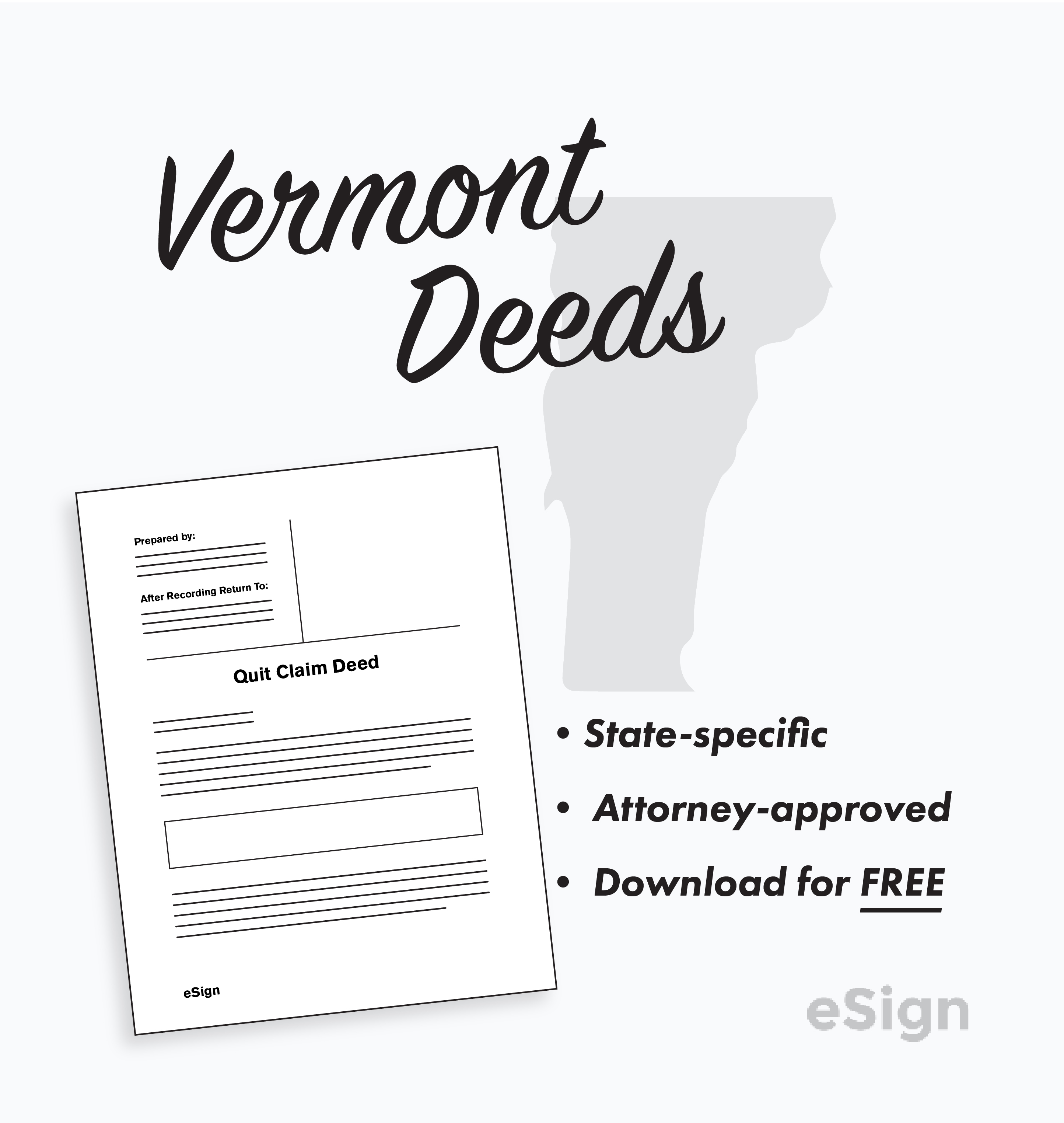By Type (4)
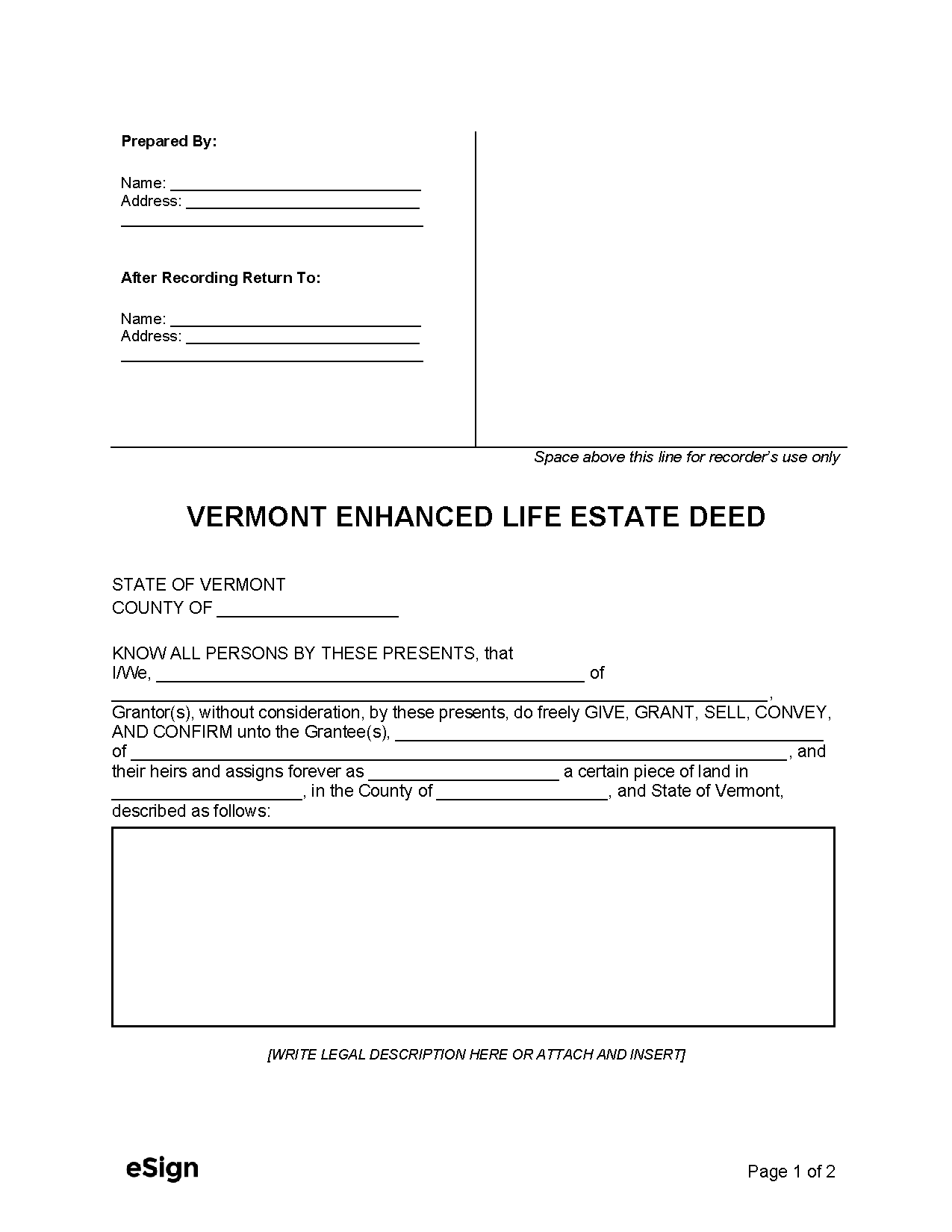 Enhanced Life Estate Deed – An estate planning document that conveys a title to beneficiaries when the grantor dies. Enhanced Life Estate Deed – An estate planning document that conveys a title to beneficiaries when the grantor dies.
|
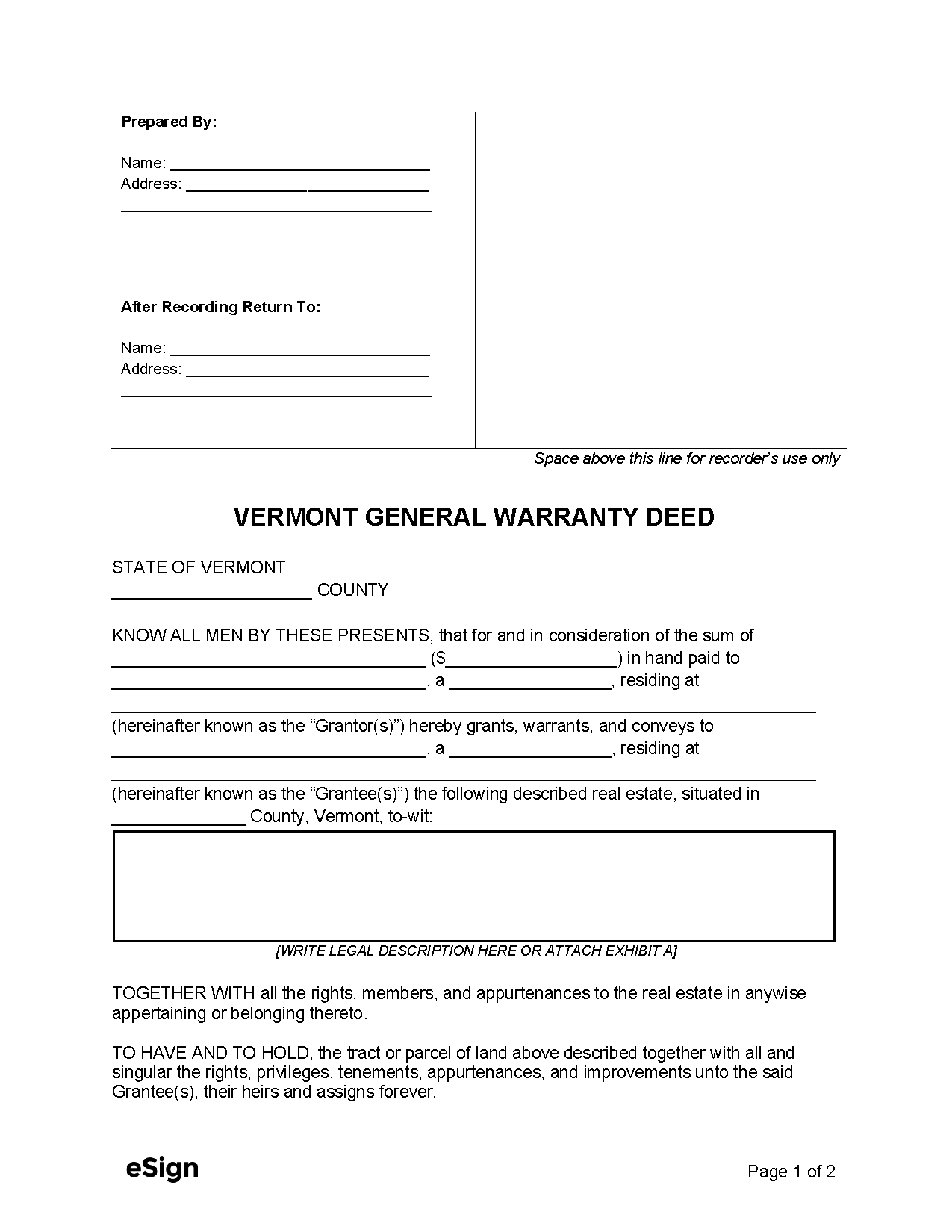 General Warranty Deed – Includes a title warranty covering existing encumbrances from all ownership periods. General Warranty Deed – Includes a title warranty covering existing encumbrances from all ownership periods.
|
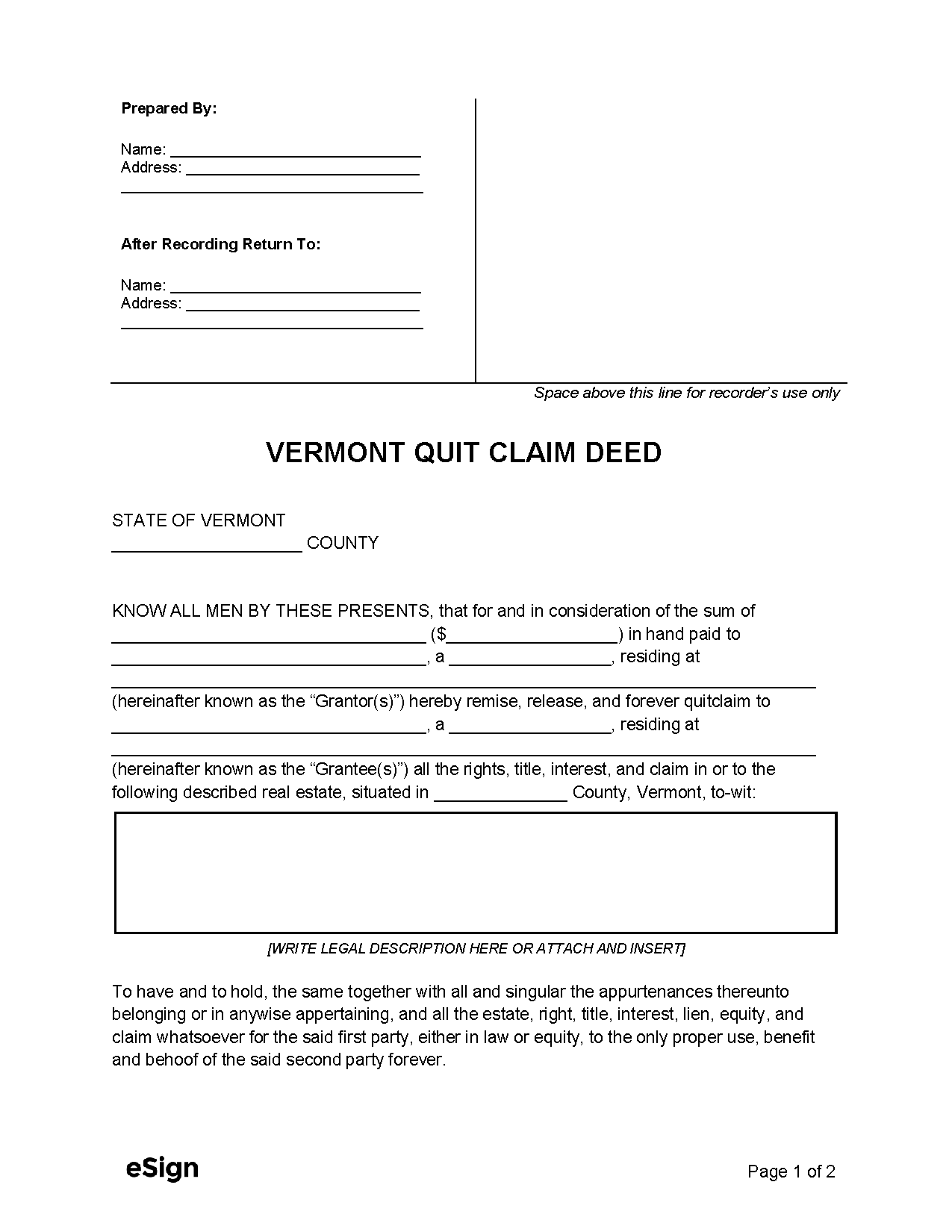 Quit Claim Deed – Conveys a real estate title without warranties from the grantor. Quit Claim Deed – Conveys a real estate title without warranties from the grantor.
|
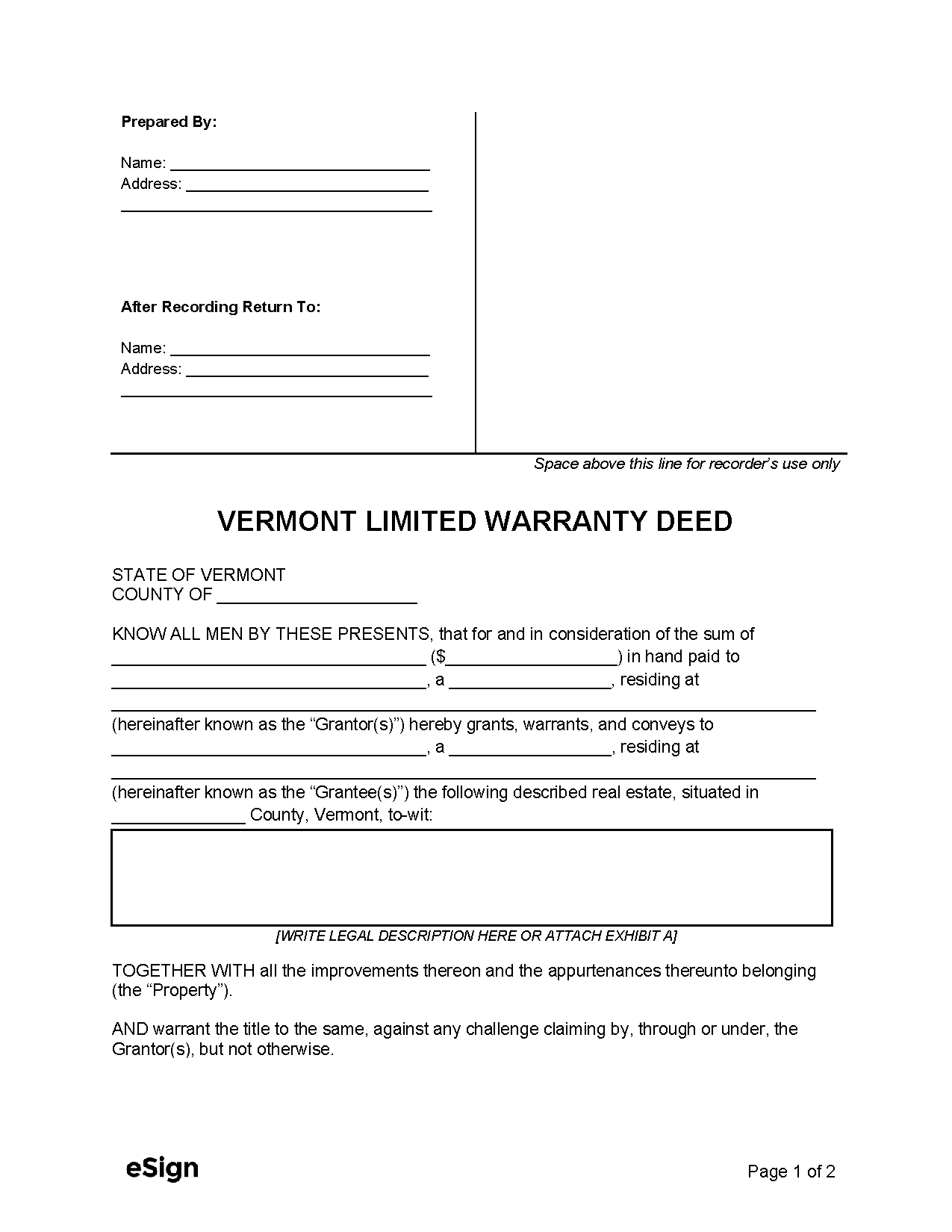 Special Warranty Deed – Warrants against title defects originating from when the grantor owned the property. Special Warranty Deed – Warrants against title defects originating from when the grantor owned the property.
|
Formatting
Vermont law doesn’t outline rules for deed formatting, but local recording offices may have their own requirements. Before filing, it’s best to contact the town/county clerk to see what’s needed.
Recording
Signing Requirements – All Vermont deeds need the grantor’s signature and a notarial acknowledgment.[1]
Where to Record – A signed and notarized deed must be recorded at the Town/County Clerk’s Office.[2]
Cost – $15 per page (at the time of this writing)[3]
Additional Forms
Property Transfer Tax Return (Form PTT-172) – Needed when filing a deed to calculate the property transfer tax (see form instructions).[4]
